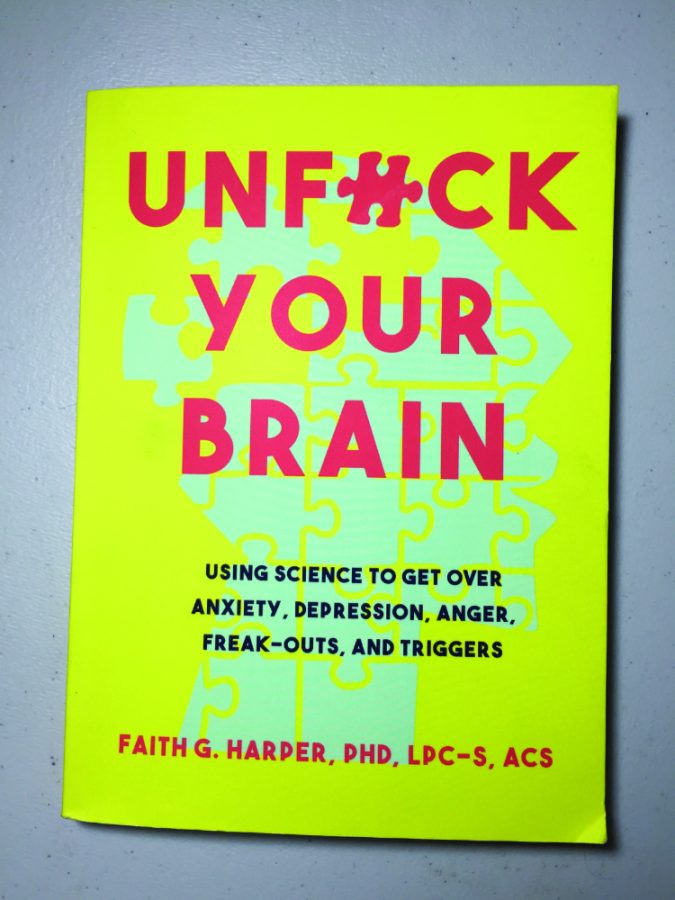‘UnF#ck Your Brain’ using Science: A Review
Faith G. Harper’s “UnF*ck Your Brain” will be available for purchase on Oct. 16. Copies will be available to order online on Amazon at www.amazon.com.
February 21, 2017
“Unf*ck Your Brain” is crass and too intrusive; it’s claiming to be a self-help book, full of tips to calm your emotions with science. If there’s any major takeaway from this self-help book, it’s that you can get better and all the emotions you’re feeling is just your brain protecting you. It is important to realize it’s not your fault. Author Faith G. Harper makes this clear from the first chapter. It honestly seems like she cares for the reader, especially those reading her book looking for actual help.
Yet she relies too much on an edgy writing style to inform and entertain the reader. This is a problem because she does this with no grace. Harper likes to string an unnecessary amount of profanities per page. With the sprinkling of questionable slang as well, it all becomes too much. It seems like she was dead set on marketing this book to young adults. This is a woman in her late forties unabashedly using slang such as: amazeballs, totes, ffs (text speak for “for f*cks sake”), boo, and hella.
I had a hard time looking past her disconcerting writing style because she should’ve toned it down. Harper’s tone and writing does change to reflect the seriousness of certain mental issues as she explains them; she is coherent and insightful. She recommends keeping a journal to keep track of emotions. She even vouches that simply counting to ten is a great way to ward off a creeping feeling of anxiety or anger. However, she reverts back to her desperate, grasping-at-youth style of writing, which quickly becomes distracting again. At times, I was more focused on reading the next out of place profanity than reading the actual content. It is aggravating, especially when she decides to write about coping methods and countering addiction.
If you are reading this book looking for help, you will be supported. Harper makes sure to point out that you are normal and your mental state is not your fault. As I said before, there are a lot of kind words and support given to the reader. Harper has great bedside manner.
She is also incredibly knowledgeable. She breaks down the complex brain and its weird tendencies into something that is understandable. When explaining these matters, she does it without being too technical or dry. I feel that she is being herself; she is not hamming it up. Still, because of this persona that Harper develops in her writing, she hypes her credentials and her PhD throughout the book. It almost seems like she expects the reader to doubt that she’s a real therapist.
It really comes across as Harper trying too hard. This is a shame because I enjoyed some aspects of the book like the composition. It’s well thought-out and the chapters flow in a logical progression.“Unf*ck Your Brain” has the form of a great self help book but Harper takes too many liberties in providing unwanted flavor to the text. This really sets the book back. I would wait for the abridged version.










